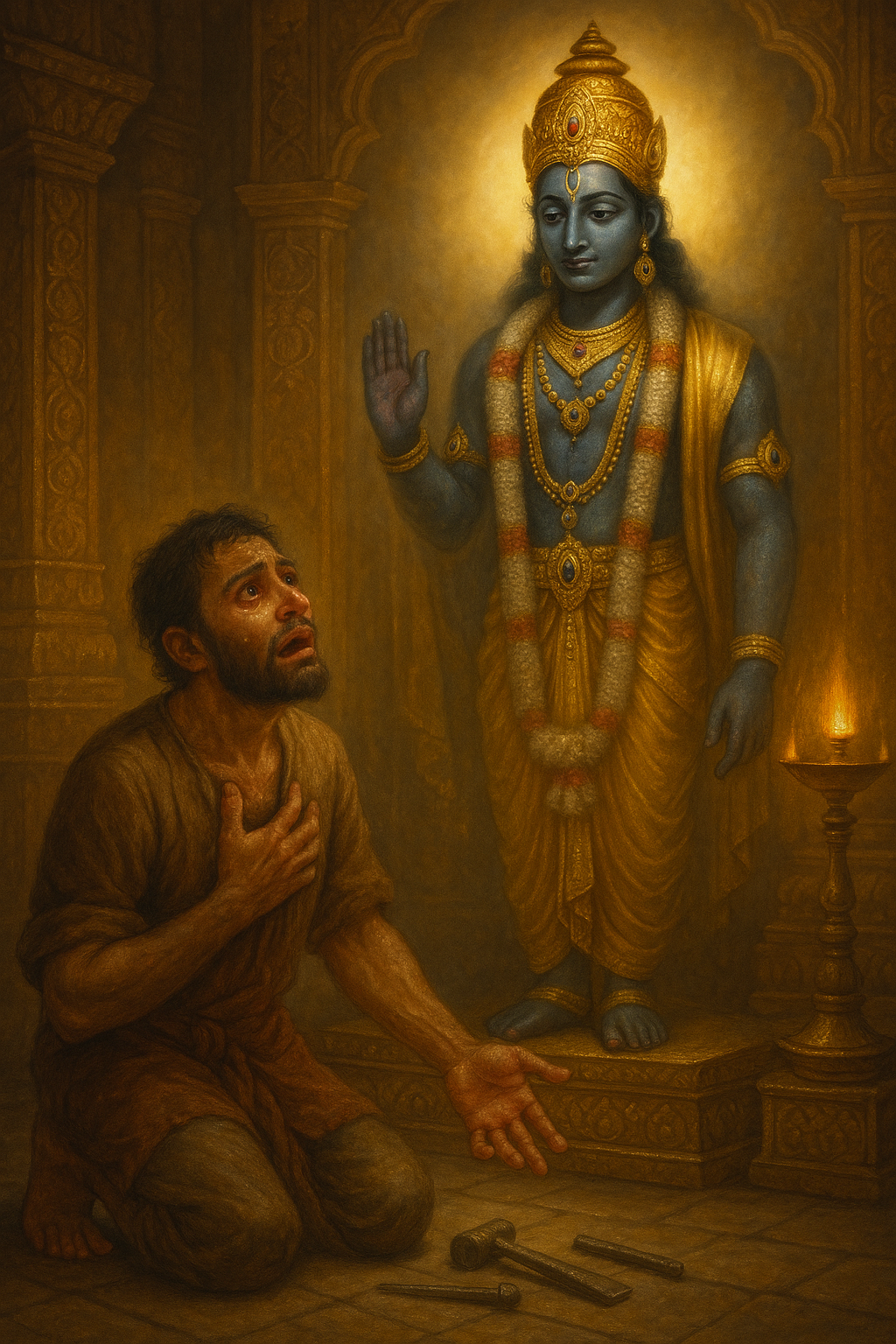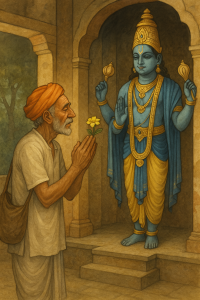A Plot Born of Greed
Once, in a prosperous city, there stood a magnificent temple dedicated to Lord Nārāyaṇa, adorned with gold, jewels, and intricately carved stone. The deity in the sanctum was beautifully decorated each day with fine clothes and precious ornaments donated by kings and wealthy merchants.
A certain thief, hearing of the deity’s wealth, decided to steal the Lord’s ornaments. “Even if He is God,” the thief thought, “He will not stop me. He is made of stone. I will take the jewels and disappear into the night.”
Carefully studying the temple’s layout, the thief waited for the perfect night. When the pūjārīs had gone and the guards had fallen asleep, he stealthily crept into the sanctum with tools in hand, ready to remove the ornaments.
A Divine Intervention
As he stepped before the deity of Nārāyaṇa, raising his hand toward the golden crown, something unexpected happened. He suddenly felt an overwhelming presence in the sanctum. The air became thick and powerful. His hands trembled. The tools dropped from his fingers.
He looked into the eyes of the deity—and in that stillness, it was as though the deity was watching him.
In an instant, something shifted in his heart. The same heart that had planned theft now felt shame, regret, and a strange warmth of longing. He fell to his knees and cried, whispering, “I came to steal from You, but You have stolen me.”
Transformation and Confession
The thief left without touching a single ornament. The next day, he returned to the temple in daylight, clean, barefoot, and humbled. Before the pūjārī and others, he bowed low and confessed everything.
“I was the thief. But when I stood before Him, I saw that He was no idol. He is real. He is the Lord. He looked at me—not with anger—but as if He knew my pain. I cannot live without surrendering to Him now.”
The priests and elders, amazed, saw his sincerity. From that day forward, the man was transformed into a servant of the temple, sweeping its courtyards and assisting in deity worship with great devotion.
Lord Nārāyaṇa’s Embrace
Years passed, and when he passed away in deep remembrance of the Lord, Viṣṇudūtas came for his soul, garlanding him with divine flowers. The people of the city witnessed the chariot of light that carried him away.
The Lord had forgiven and embraced the very soul who once came to rob Him.
Lessons to Be Learned:
- The Lord can transform even the most sinful heart if one sincerely repents and turns to Him.
- The Lord is not an idol, but the fully conscious, loving Supreme Person, present in His deity form.
- A moment of honest surrender can erase lifetimes of sin.
- As stated in Padma Purāṇa and confirmed in Bhagavad-gītā: “api cet su-durācāro bhajate mām ananya-bhāk / sādhur eva sa mantavyaḥ samyag vyavasito hi saḥ”
“Even if one commits the most abominable action, if he is engaged in devotional service, he is to be considered saintly, because he is properly situated.” (Bhagavad-gītā 9.30)
Origin of the Story: Padma Purāṇa – Stories illustrating the transformative power of the Lord’s presence and the redemption of even a sinful soul through genuine remorse and surrender.

